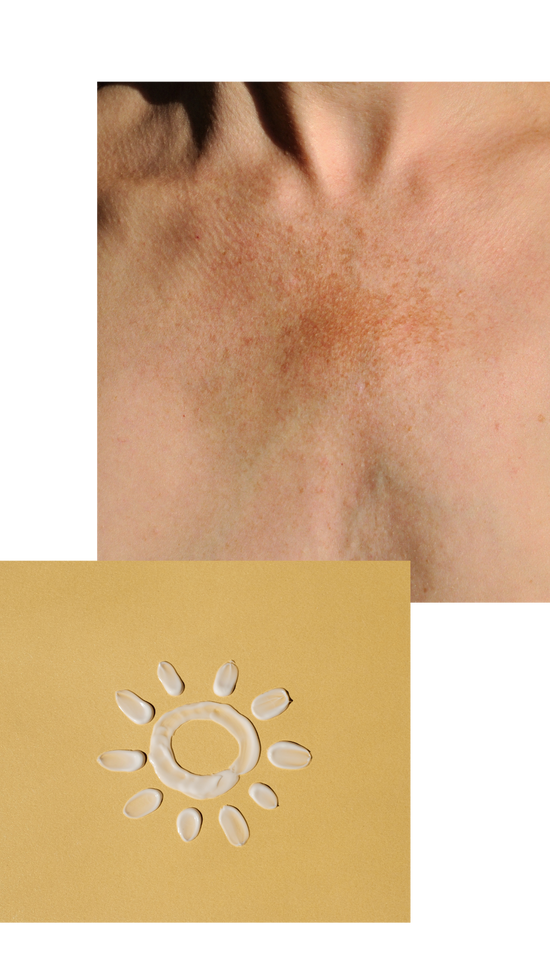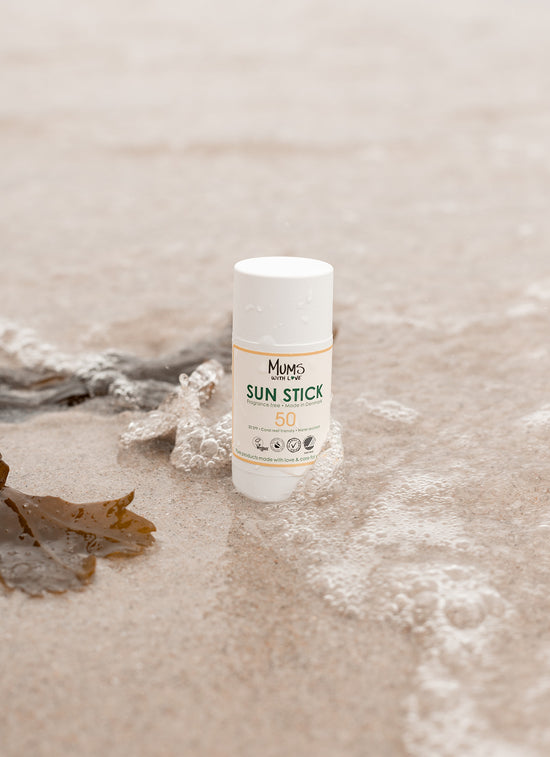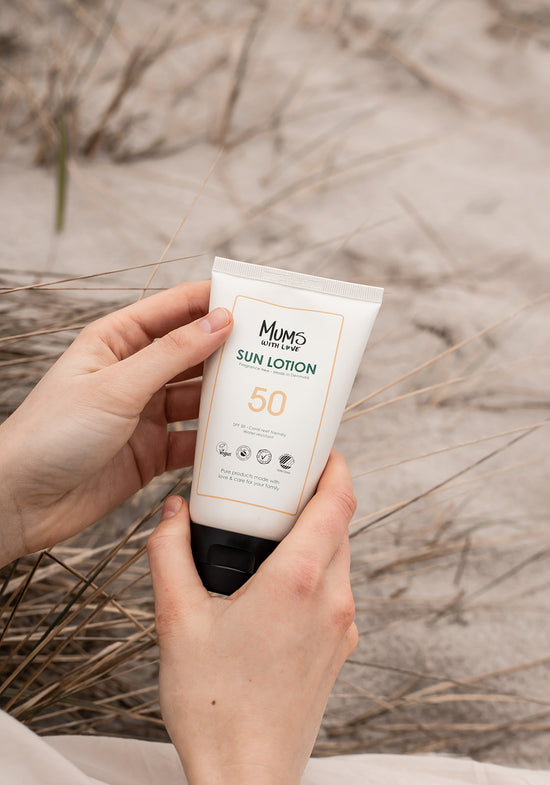All the benefits of using products with SPF
Spring has officially started, and the sun is beginning to peek through the clouds. The sun is an important source of vitamin D, which is crucial for a healthy body, but it is also a source of dangerous UV rays that can cause sunburn, premature aging of the skin, and increase the risk of skin cancer. Therefore, it is important to protect your skin daily with products that contain SPF. In this article, we will examine why SPF is crucial for your skin and overall health, and how you and your family can integrate it into your daily skincare routine to achieve the best possible protection against the sun's harmful rays.
-
What does UV radiation stand for?
When we talk about UV rays in relation to sunscreen, there are two types: UVA and UVB. UVB rays are the ones we most often hear about, but they actually only make up 5% of the UV rays that reach the earth. These rays affect the top layer of the skin and, for example, make your skin tan. However, they are also the rays that cause sunburn and sun damage. That's why they are also called the "burning rays". The reason why our skin develops the brown pigment, melanin, is actually an attempt to protect our skin from these rays, and when you expose your skin to too much sun and it turns red, it's a warning signal from your skin that it can't handle any more. If your skin gets burnt, this can also lead to skin cancer and melanoma.
UVA rays account for the remaining 95% of the UV rays that penetrate our atmosphere. Unlike UVB rays, they cannot be felt directly, as they penetrate deep into the skin. They are still harmful, as the free radicals they produce can change your cells and, in the long term, can cause your skin to become looser and lose its elasticity, leading to wrinkles. In addition, they can cause changes in pigmentation, such as dark spots and the development of sun rash. Finally, they increase the risk of skin cancer.
This means that the sun's rays have several risks associated with them. By using sunscreen with both UVA and UVB protection, you can create a protective barrier on your skin, which can better withstand the harsh rays -

-

-
What does SPF stand for?
SPF stands for Sun Protection Factor, and it indicates how well a product protects against UVB rays. For example, SPF 15 means that the skin can be exposed to 15 times more UVB radiation before it turns red. However, it does not mean that you can stay in the sun 15 times longer! There is a general rule that sunscreen with SPF 15 blocks 93% of UVB radiation, SPF 30 blocks 97%, SPF 50 blocks 98%, and SPF 100 prevents 99% of UVB rays from reaching your skin. As mentioned, SPF focuses on UVB rays, so if you want a sunscreen that also protects against UVA rays, you need a broad-spectrum sunscreen that states that it protects against both types of UV rays.
-
How to use sunscreen?
The rule is: Rather too much than too little. Apply an extra layer of sunscreen, and make sure to cover all the areas that are exposed to the sun - including the ears, back of hands, and feet in flip flops.
Products with SPF can be found in the form of sunscreen, sun spray, makeup, and moisturizer. Check out our entire range of sun protection products here.
It is important to use products with SPF every day, as UV rays can penetrate through clouds and windows. Even if you are not directly in the sun, you can still be exposed to UV rays. Therefore, it is important to make sun protection a regular part of your skincare routine.
It is recommended by the Danish Cancer Society to use a sunscreen with an SPF of at least 15 for daily protection in Denmark. For activities directly in the sun, you should use sunscreen with a higher SPF, and reapply the sunscreen every two hours and after swimming or sweating. -

-

-
If you have children, it is particularly important to protect their skin from the sun's rays, as their skin is more delicate and sensitive than adult skin. Children should be kept in the shade during the hottest hours of the day (11am-3pm), and if they are out in the sun, they should be protected with clothing, a hat, and a good amount of sunscreen all over their body and face. Babies should not be exposed to sunlight and should be kept in the shade and protected with clothing.
Remember that sunscreen can never provide 100% protection against ultraviolet rays, and therefore you should also protect yourself with clothing, shade, and common sense.By taking these simple precautions, you and your family can enjoy the sun safely and minimize the risk of sunburn and other harmful effects of the sun.
5 good reasons to use sunscreen:
1. Protection against sunburn:
SPF protects your skin against UVB rays, which are the rays that cause sunburn. By using sunscreen with a suitable SPF, you can reduce the risk of sunburn and decrease skin irritation and pain.
2. Prevention of skin cancer:
Regular use of sunscreen can help reduce the risk of developing skin cancer. UV rays can cause DNA damage in skin cells, which can lead to the development of skin cancer, but by protecting your skin from UV rays, you can decrease the risk of developing this disease. Here, it's especially important to choose sunscreen with both UVA and UVB protection.
3. Prevention of premature skin aging:
Broad-spectrum sunscreen also protects against UVA rays, which can make the skin looser and thus cause wrinkles and fine lines. By protecting your skin from UVA rays, you can maintain a more supple skin.
4. Maintenance of an even skin tone:
General sun protection reduces the chance of discoloration and pigmentation of the skin. By using sunscreen, you can maintain an even skin tone and avoid damage caused by the sun.
5. Improvement of skin health:
Sunscreen helps protect the skin against the harmful effects of UV rays, which can lead to inflammation, dryness, and irritation. By protecting your skin from these harmful effects, you can improve your skin's health and appearance.




